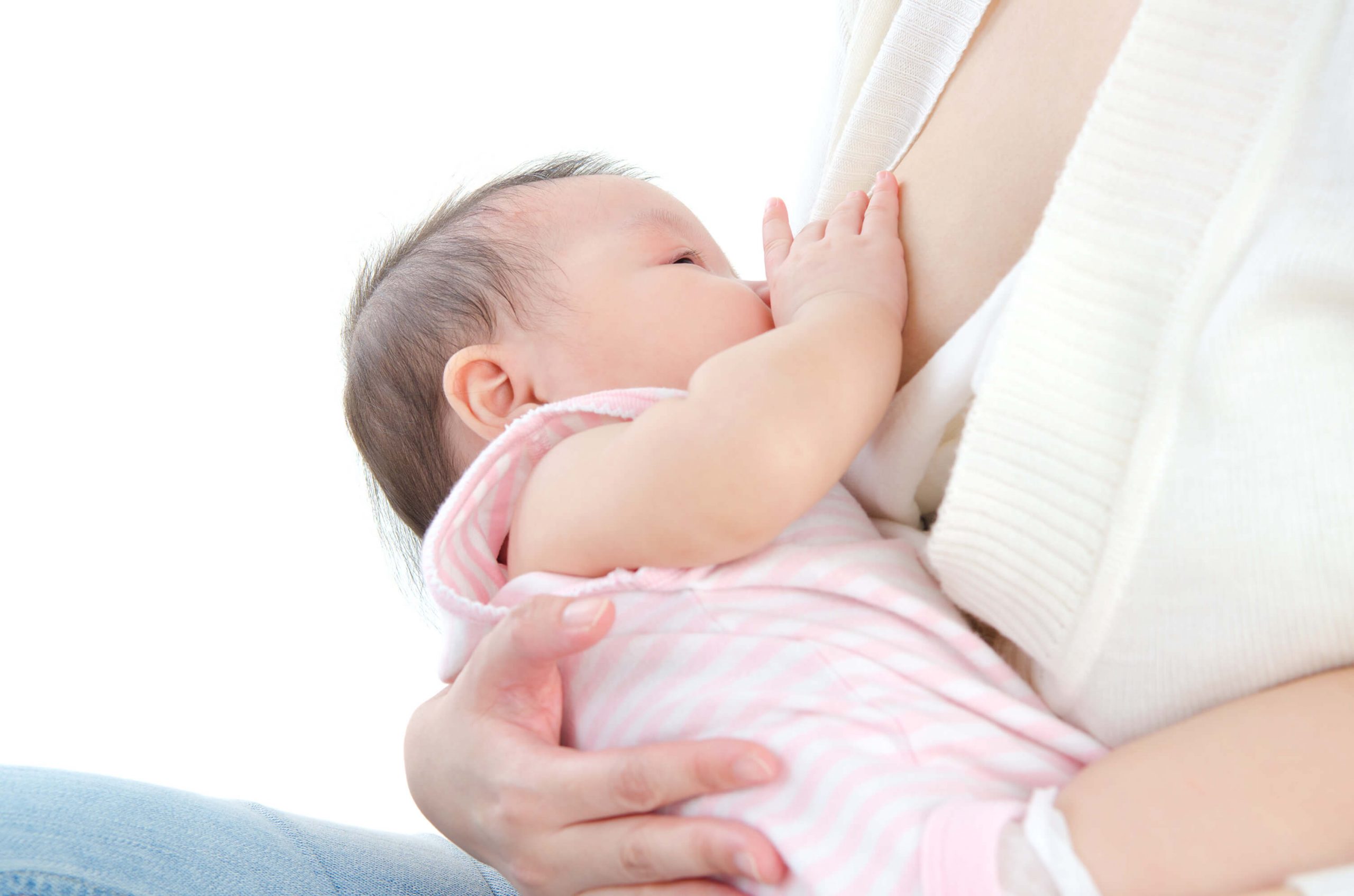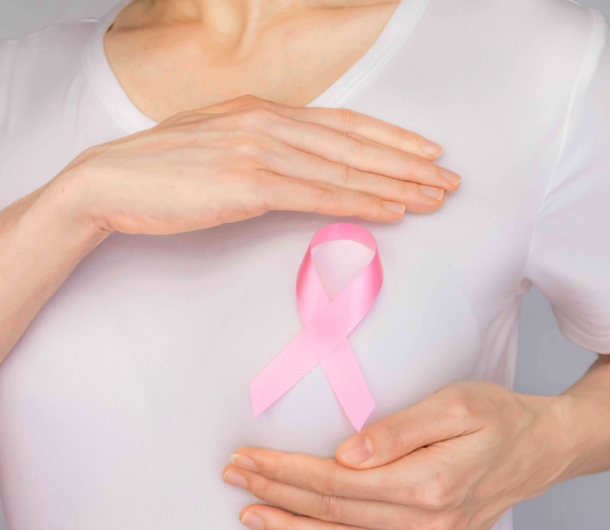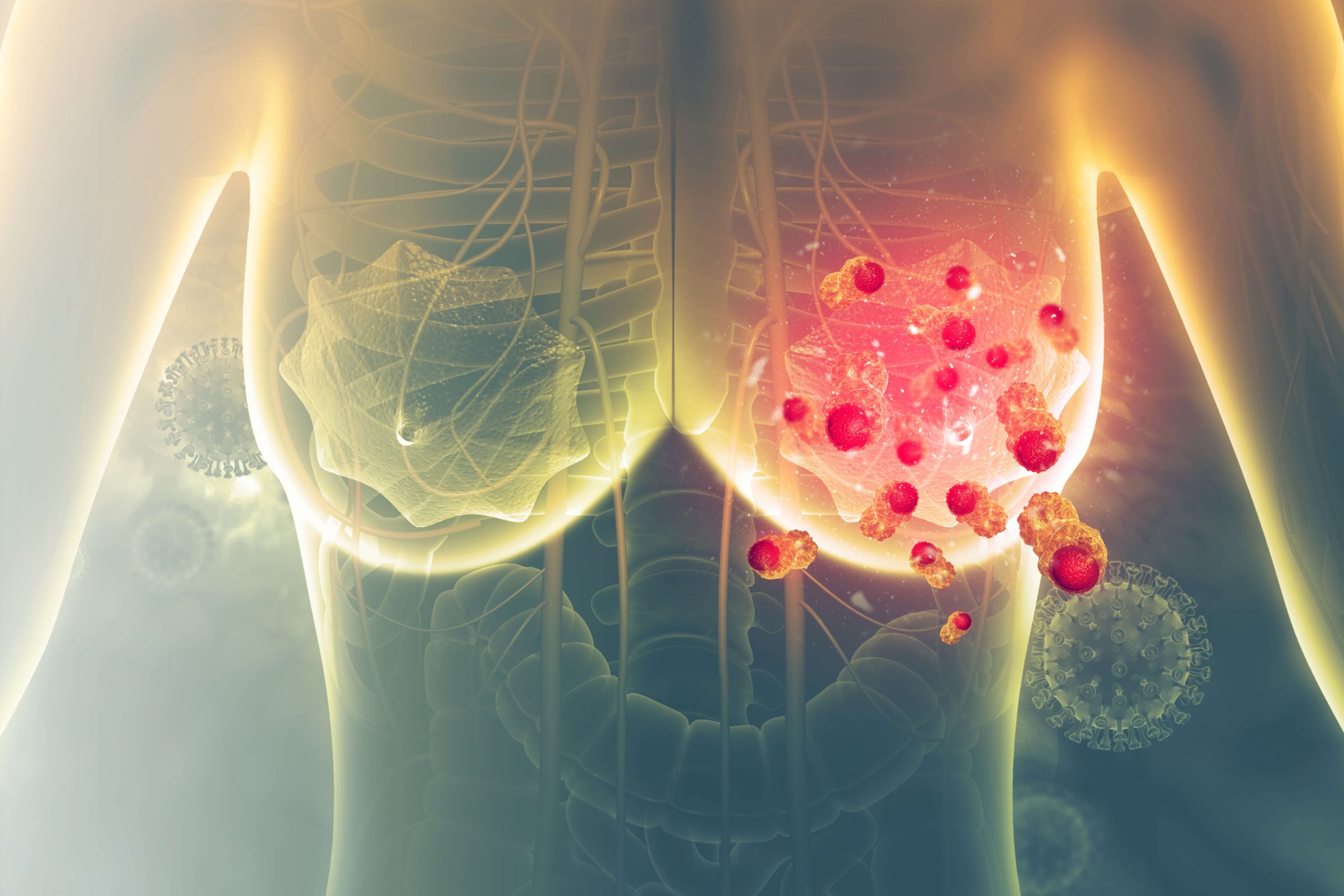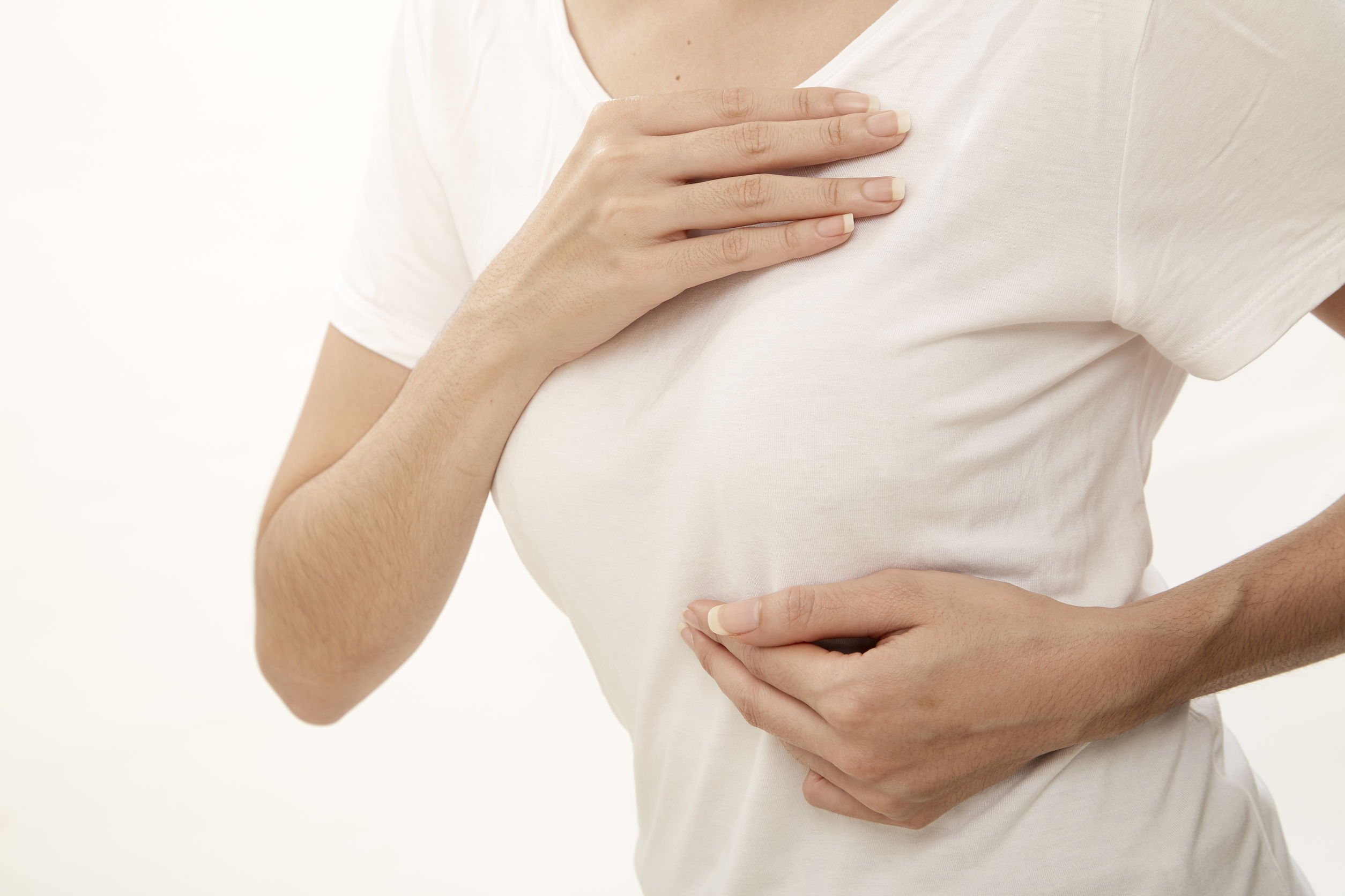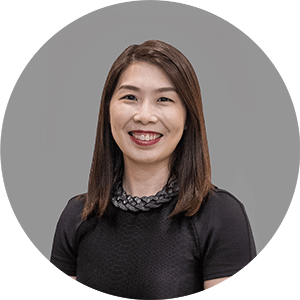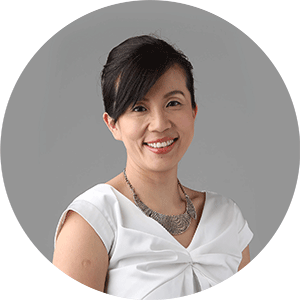Breast Health
Common Causes Of Breast Pain You Should Know
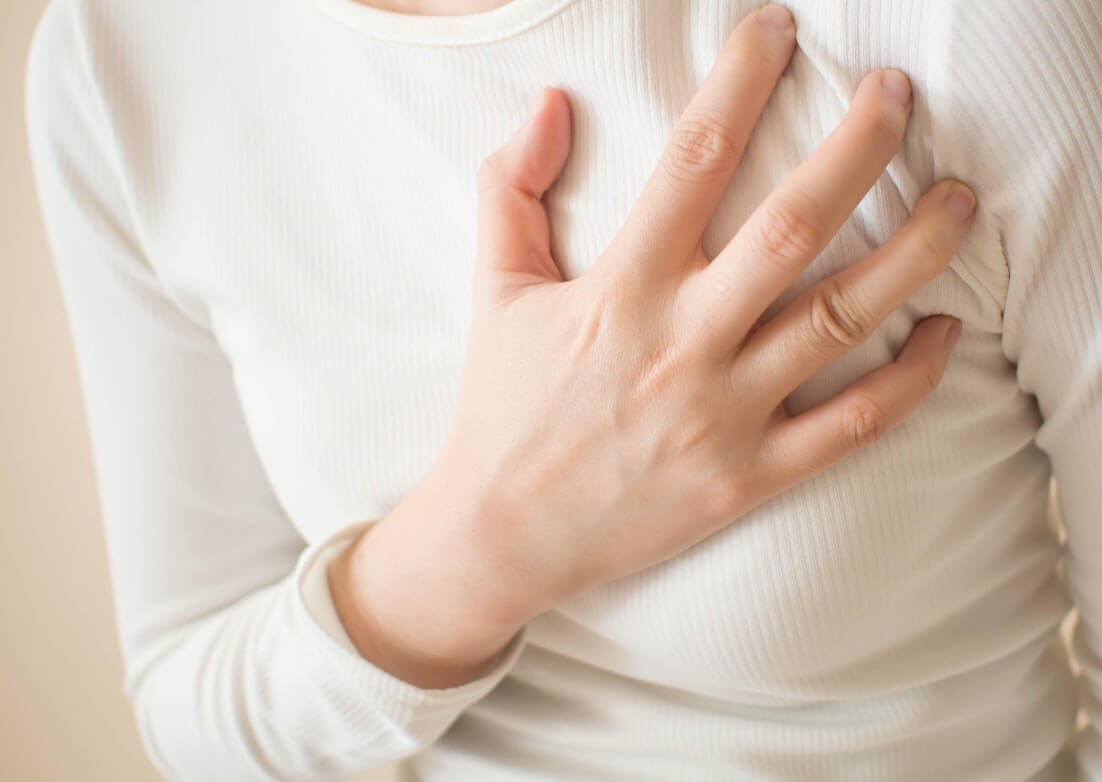
Also known as mastalgia, breast pain is the most common breast symptom, and it causes much anxiety and worries among women. 70% of women experience breast pain at some point in their lives, with the highest incidence between the ages of 30 to 50 years old. The pain can occur at varying levels of severity, and types of pain can be described as tenderness, burning sensation, or even tightening of the area surrounding the breasts.
Fortunately, breast pain is rarely a symptom of breast cancer.
Common Causes Of Breast Pain
Breast pain is usually categorized as either cyclical or non-cyclical, depending on whether the pain is related to the woman’s menstrual periods.
Hormonal Fluctuations
Hormone fluctuations in estrogen and progesterone are caused by women’s menstrual cycles, causing cyclical breast pain. This is largely physiological and does not signify any breast abnormality.
Typically if the breast pain is due to hormone fluctuations, you may feel increased pain in both breasts several days before your period, and this pain eases after the onset of menstrual bleeding. If you are unsure whether your breast pain is cyclical, you are advised to keep a log of your periods and a record of the intensity of your breast pain, to establish if your breast pain is linked to your menstrual cycle.
If you have fibrocystic breast change, you may have more significant cyclical breast pain associated with breast lumpiness. Fibrocystic breasts is a benign breast condition, comprising of a spectrum of breast changes that vary from tissue lumpiness to cysts and benign breast lumps. These changes do not cause breast cancer. However, if you have a breast lump that persists after your periods, this should be assessed by a breast surgeon to exclude breast cancer.
Most common in women before menopause, they can occur in women of any age, such as women post-menopause on hormone therapy.
Chest Wall Pain
The most common non-cyclical cause (unrelated to menstrual periods) is chest wall pain. This is because the breasts sit over the chest wall muscles, namely the pectoralis muscles, as well as the ribcage. Musculoskeletal pain over the pectoralis muscles may be caused by keeping a poor sitting posture or sleeping position. Costochondritis (pain at the ribs and cartilage) is another common cause of chest wall pain, caused either by poor posture or a recent viral infection.
Most of the time, this pain can be alleviated by doing stretching exercises and exercises that strengthen your core muscles, as well as simple painkillers when required.
An Improperly Fitted Bra
Breast pain can result from an improperly fitted bra. A bra that is too tight can compress the breasts and chest wall, resulting in discomfort or pain. On the other hand, a bra that too loose is unable to provide adequate support to the breasts, causing the breast ligaments and breast tissue to be stretched, thus causing breast pain.
Latest Articles
How Are Abdominal Hernias Treated?
What to Expect from Colorectal Surgery
How to Treat Breast Inflammatory Conditions
Gynaecomastia: Understanding Male Breast Cancer
Breast Pain Related To Breastfeeding
Nipple Pain
The most common reasons for cracked or sore nipples during breastfeeding are improper latching or pumping. If you are having painful nipples, you may try to breastfeed your baby on the unaffected side first. As breast milk has antibacterial properties, a few drops can be applied to the affected nipple to aid healing. Lanolin nipple ointment may be used as an alternative. If you have frequent nipple pain, please see your lactation consultant to check on your latching or pumping techniques.
Breast Engorgement
Breast engorgement happens when the breasts become overfull. It typically happens during the 3rd day of breastfeeding, when the milk supply increases, or whenever the breast milk is not flowing well.
When this happens, you may need to feed your baby more frequently. If you are unable to do so, you can pump or manually express your breast milk to empty your breast. Taking a warm shower before feeding or pumping will aid the milk flow. If your breasts still feel engorged after feeding or pumping, application of ice cabbage or ice packs for 15 min after feeding will further relieve your symptoms.
Blocked Ducts
When milk is not flowing well, milk ducts may become blocked, forming painful and tender breast lumps. This is frequently noted in breastfeeding mothers, and most of the time resolves spontaneously with gentle massage of the area. If possible, you may also feed your baby with the chin pointed towards the blocked area to stimulate the milk flow.
Mastitis & Breast Abscess
Blocked ducts that do not resolve may evolve into mastitis (breast infection) or into an abscess (pus collection). When this happens, you will likely experience breast pain, swelling, warmth and redness in the breasts, and in some cases, fever. You will need to consult your doctor for antibiotics and drainage of pus in this case.
When You Should See A Doctor About Your Breast Pain
You should make an appointment with your doctor if your breast pain:
- Affects your daily life
- Persists longer than two weeks
- Is caused by a breast lump
- Gets worse instead of resolving on its own
WHO WE ARE
About SOG Health Pte. Ltd.
Established in 2011, SOG Health Pte. Ltd. (“SOG”) is a leading healthcare service provider dedicated to delivering holistic health and wellness services to the modern family.
With a long and established track record in Singapore providing Obstetrics and Gynaecology (“O&G”) services such as pre-pregnancy counselling, delivery, pregnancy and post-delivery care, the Group has since further expanded its spectrum of healthcare services to include Paediatrics, Dermatology, and Cancer-related General Surgery (Colorectal, Breast & Thyroid).
The Group’s clinics, under its four operating segments of O&G, Paediatrics, Oncology and Dermatology, are strategically located throughout Singapore to provide easy access to its patients.
- Obstetrics
- Gynaecology
- GynaeOncology
- Breast, Thyroid & General Surgery
- Colorectal, Endoscopy & General Surgery
- Dermatology
- Paediatrics
Consult With A Specialist From SOG
Visit one of our specialists today to learn more about your health!
Recommended Specialists
Book An Appointment
Fill up this form and our clinic will get back to you shortly.
For general enquiries, please click here.
